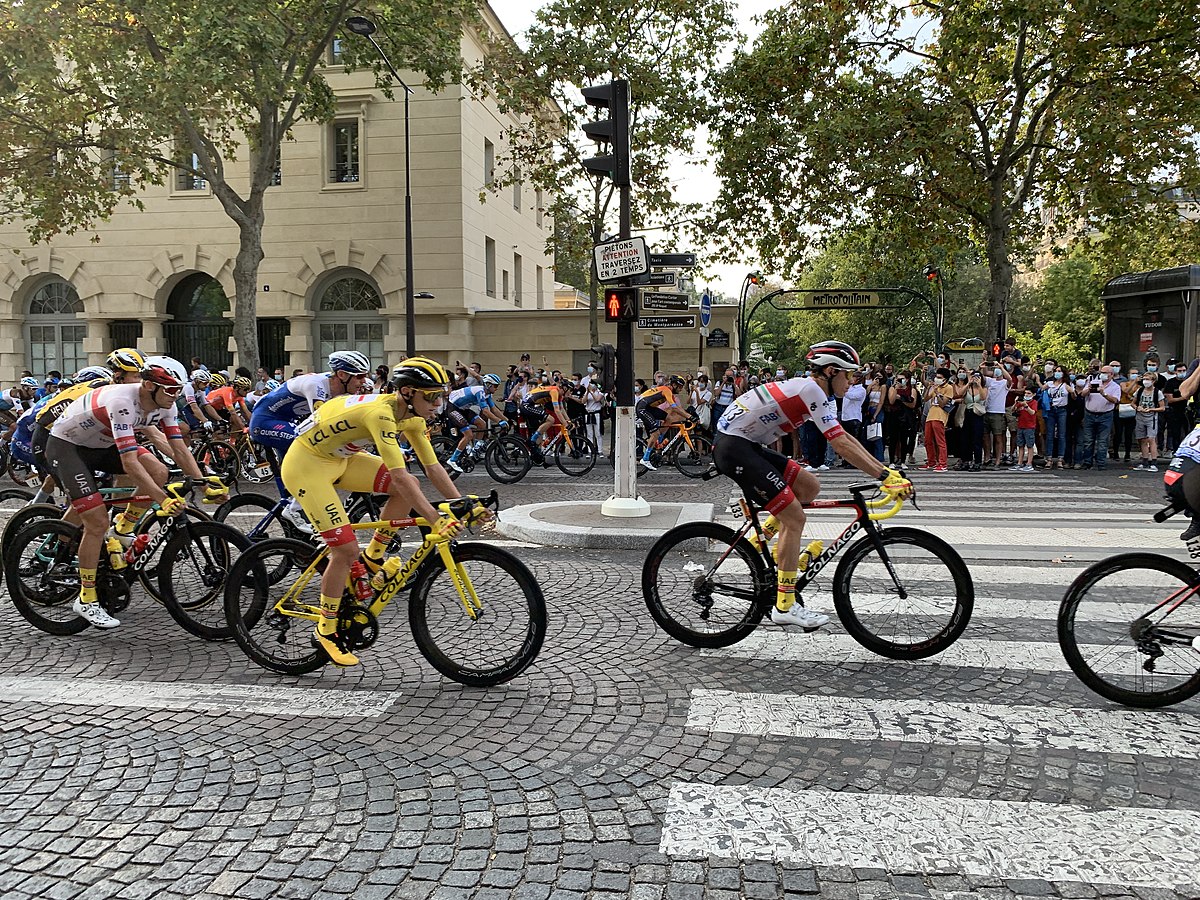Tadej Pogacar: the best in the world
22-year-old Tadej Pogacar (UAE Team Emirates) defended his Tour de France victory from 2020 to become a two-time winner of the French race, becoming the youngest cyclist to achieve this feat.
The 22-year old Slovenian rider kept his cool in the Pyrenean stages to maintain the lead built up in the first week and cruised to victory with a comfortable margin over second-placed Jonas Vingegaard (Jumbo-Visma).
Vingegaard entered the race as a team helper for Pogacar’s main rival, Primoz Roglic, but when the latter crashed out in the first week, it was the Dane who was to challenge Pogacar for first place.
Third place went to Ecuadorian rider Richard Carapaz, who represents the British Ineos Grenadiers team.
The outfit, managed by Sir Dave Brailsford, fielded an extremely powerful line up, featuring former winner Geraint Thomas, the first rider in last year’s Giro d’Italia, Tao Geoghegan Hart, and Australian challenger Richie Porte. However, the first week and time losses from the others saw the role of team leader shift to Carapaz, who has a win in the 2019 Giro d’Italia in his palmarès.
Four stage wins went to Mark Cavendish, allowing the Manxman to equal the record for victories set by Eddy Merckx in the 1970s. They now both have 34 stage successes to their name.
Cavendish, whose last moment of glory in France prior to this year’s came in 2016, struggled with illnesses, injuries and other injuries in the last few seasons. This year, however, the 36-year-old returned to his former Deceuninck–Quick-Step team and, after showing promising form in the spring with successes at the Tour of Turkey and Baloise Belgium Tour, was a last-minute addition to the team’s line-up for cycling’s most important race as the start sprinter, Irishman Sam Bennett, struggled with a knee injury.
It remains to be seen how long the Pogacar will be able to keep up his top form
The “Manx Missile” also won the race’s points classification, which rewards cyclists who consistently finish in high positions during the race’s stages and is most commonly won by the strongest sprinter.
The Tour de France began with a set of punchy stages in Brittany, which saw strong rides from classics specialists, such as Julian Alaphilippe and Matthieu van der Poel – both stage winners and yellow jersey holders. However, the narrow and twisty roads led to numerous crashes and splits in the peloton, with Roglic, Thomas and Geoghegan Hart among the main victims.
Stage five, an individual time trial, allowed Pogacar to take his first stage victory and build up a lead over other favourites. He then put on a mighty performance in the Alps, dropping all competitors and steaming into the coveted maillot jaune, or yellow jersey.
At this point, Pogacar appeared untouchable. His lead over second-placed Ben O’Connor was over two minutes after the first weekend, and he appeared to be on another level.
On a stage featuring the coveted Mont Ventoux, the Slovenian cracked, however, and was temporarily dropped by an attack from Vingegaard, though this came to nothing as the Dane was caught and finished with his rival.
With this in mind, when the race entered the Pyrenees, it appeared that only the Dane could challenge the defending champion. The two hardest stages, ending on the challenging climbs of the Col du Portet and Luz Ardiden, respectively, told a different story.
Pogacar’s UAE Team Emirates team began both ascents by setting a tempo that dramatically removed the number of favourites. Afterwards, the Slovenian leader was left to fight out for glory with Vingegaard and Carapaz, with Spaniard Enric Mas also keeping up on the second stage. In the closing metres, Pogacar was unassailable and won on both stages. The points gained on both finishes meant that he also won the king-of-the mountains classification.
A solid showing in the final time trial, despite Vingegaard’s better result, meant that the 22-year-old finished over five minutes over the Dane and could enjoy the final parade on the streets of Paris, ahead of the final trophy presentation.
What now? It remains to be seen how long the Slovenian rider will be able to keep up his top form, while having already achieved more than many others at such a young age, whether he stays motivated is also a big question. However, his victory can certainly be called. Pogacar demonstrated his talent already in cycling’s lower ranks, winning the most important race for young riders, the Tour de l’Avenir, in 2018 and later consistently developing his talent to firstly reach top honours in the biggest race in the world last year, before building on victory in this edition.
The cycling world took a break for the Summer Olympics in Tokyo, but returns in mid-August for the Vuelta a Espana. The Spanish race is the final of the sport’s three Grand Tours and will finish on 5 September in Santiago de Compostela.

Comments